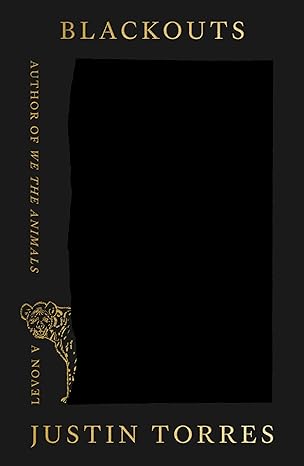Farrar, Straus and Giroux
Blackouts
Blackouts
Couldn't load pickup availability
Winner of the National Book Award for Fiction
A Best Book of the Year: The Washington Post, Time, BookPage
A Must-Read: The New York Times, Time, Los Angeles Times, Chicago Tribune, The Guardian, Boston Herald, Literary Hub, The Rumpus, The Bay Area Reporter, Datebook, Electric Literature, The Stacks, Them, Publishers Weekly
“Sweeping, ingenious . . . A kiss to build a dream on.” ―Maureen Corrigan, NPR’s Fresh Air
From the bestselling author of We the Animals, Blackouts mines lost histories―personal and collective.
Out in the desert in a place called the Palace, a young man tends to a dying soul, someone he once knew briefly but who has haunted the edges of his life: Juan Gay. Playful raconteur, child lost and found and lost, guardian of the institutionalized, Juan has a project to pass along, one built around a true artifact of a book―Sex Variants: A Study of Homosexual Patterns―and its devastating history. This book contains accounts collected in the early twentieth century from queer subjects by a queer researcher, Jan Gay, whose groundbreaking work was then co-opted by a committee, her name buried. The voices of these subjects have been filtered, and muted, but it is possible to hear them from within and beyond the text, which, in Juan’s tattered volumes, has been redacted with black marker on nearly every page. As Juan waits for his end, he and the narrator recount for each other moments of joy and oblivion; they resurrect loves, lives, mothers, fathers, and minor heroes. In telling their own stories and the story of the book, they resist the ravages of memory and time. The past is with us, beside us, and ahead of us; what are we to create from its gaps and erasures?
A book about storytelling―its legacies, dangers, delights, and potential for change―and a bold exploration of form, art, and love, Justin Torres’s Blackouts uses fiction to see through the inventions of history and narrative. A marvel of creative imagination, it draws on testimony, photographs, illustrations, and a range of influences as it insists that we look long and steadily at what we have inherited and what we have made―a world full of ghostly shadows and flashing moments of truth. A reclamation of ransacked history, a celebration of defiance, and a transformative encounter, Blackouts mines the stories that have been kept from us and brings them into the light.
Share


